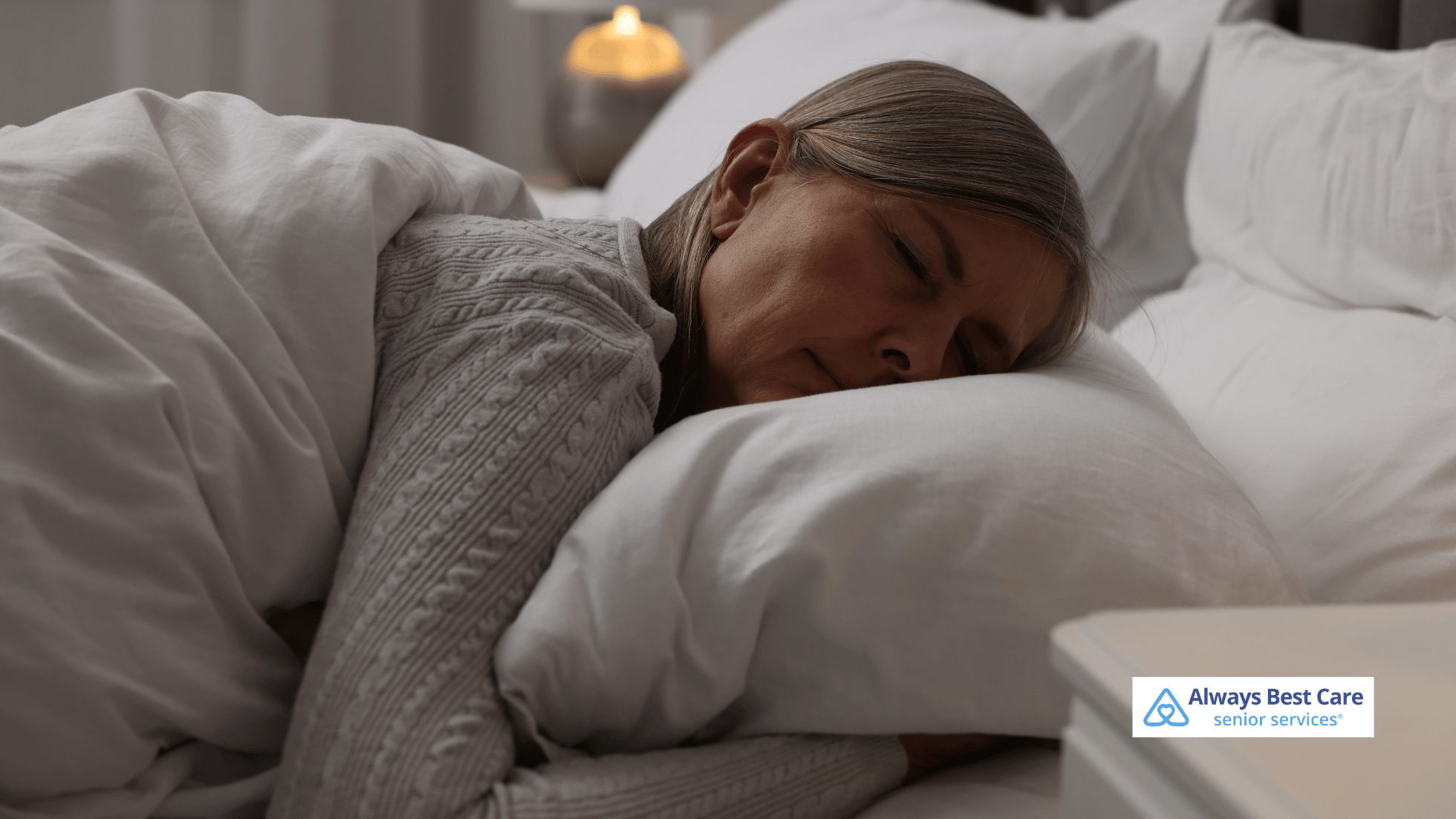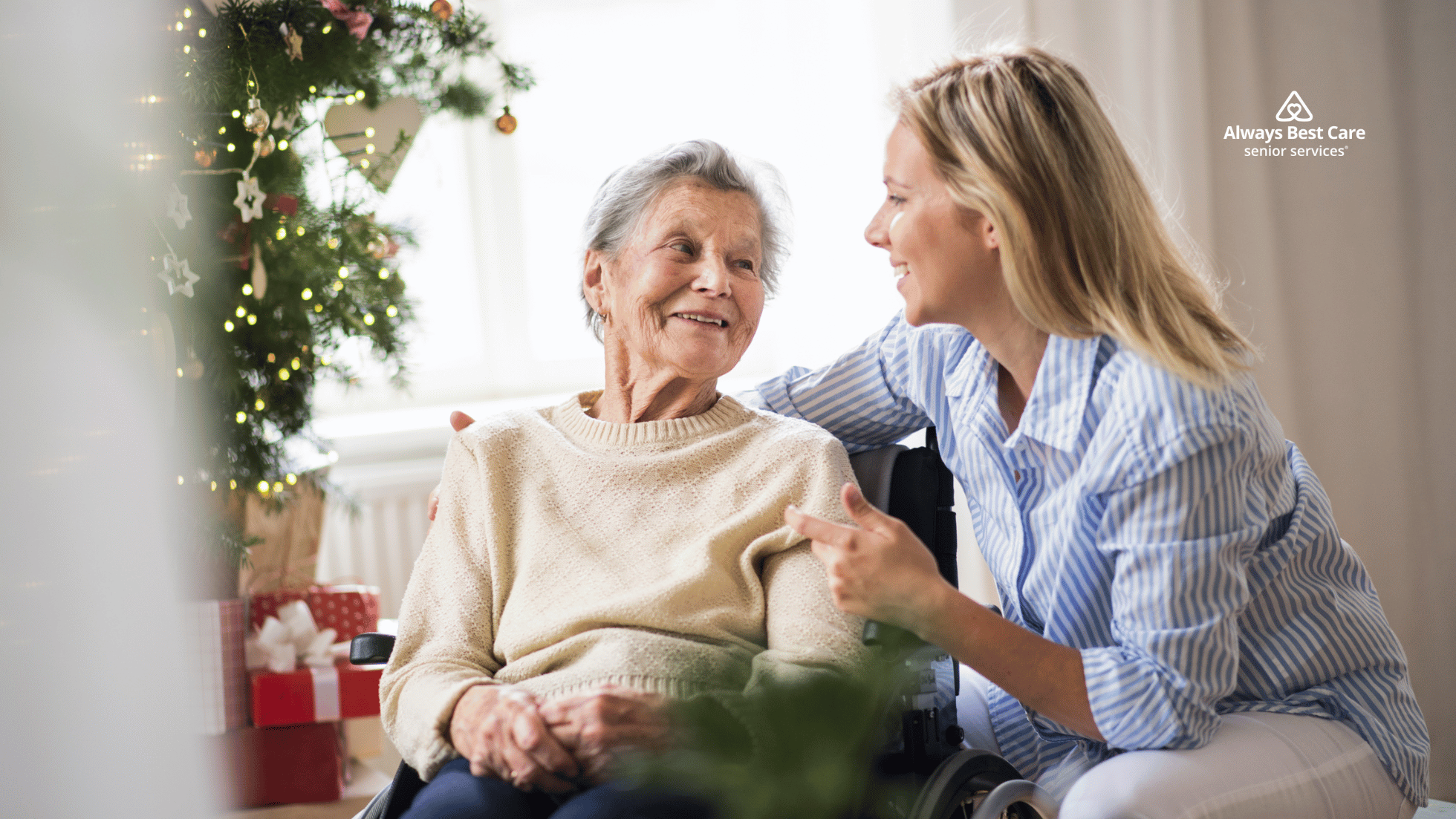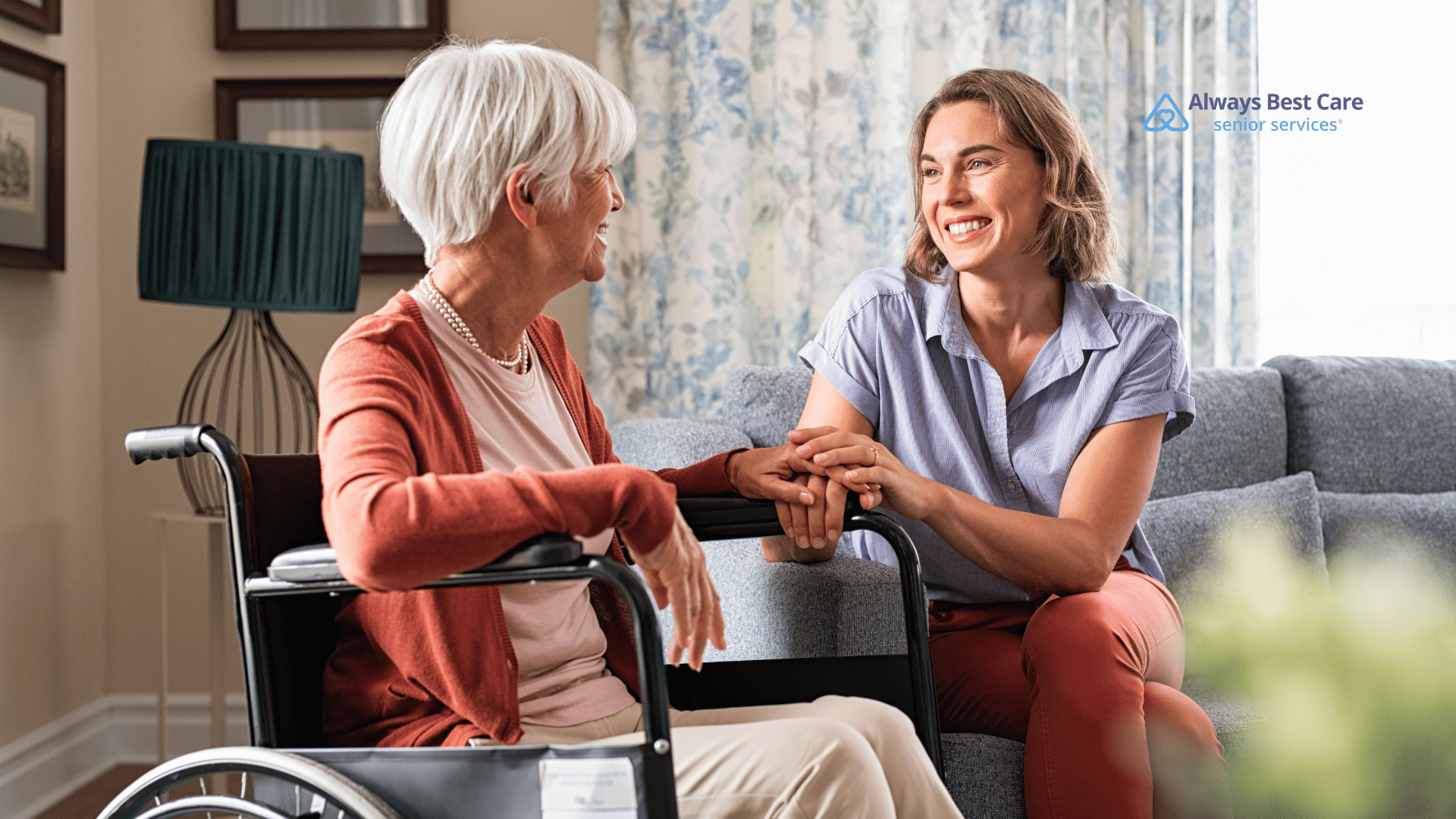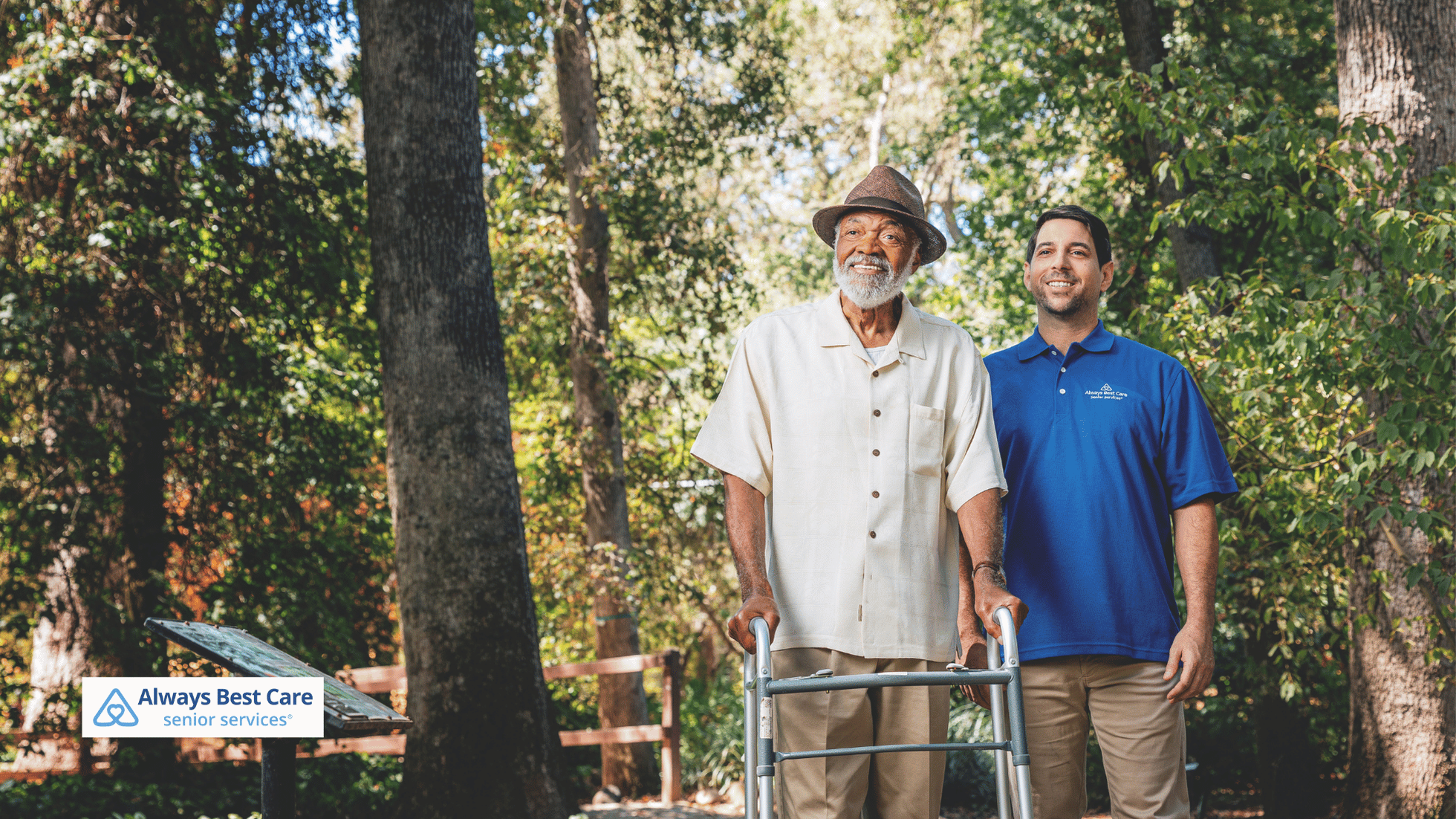8 Sleep-Boosting Tips to Help Seniors Rest Well

A good night’s sleep is essential for everyone, but it becomes especially important as we age. Quality sleep helps with memory, mood, and physical health, allowing seniors to stay active and rejuvenated daily.
Unfortunately, sleep problems are common among older adults, making it harder for them to fall asleep and stay asleep.
If your loved one struggles to get the rest they need, these eight sleep-boosting tips can help.
Table of Contents
Why Good Quality Sleep is Important for Seniors
Quality sleep is crucial in maintaining overall health, especially for seniors. As we age, our bodies require restful sleep to repair tissues, strengthen the immune system, and support cognitive function.
Without enough deep sleep, seniors may experience a decline in memory, concentration, and mood. Poor sleep can also increase the risk of health issues like heart disease, stroke, and diabetes while exacerbating existing conditions like arthritis or chronic pain.
1. Create a Relaxing Bedtime Routine
Establishing a relaxing bedtime routine can signal the body that it’s time to unwind.
For seniors, this could involve light stretching, reading a favorite book, or listening to calming music. The key is to make this routine consistent every night.
Encourage activities that promote relaxation, such as deep breathing or guided imagery. Avoid watching TV or using smartphones before bed, as the blue light emitted can disrupt the body’s natural sleep cycle.
A calming routine makes falling asleep easier and helps ensure rest is more peaceful and uninterrupted.
2. Adjust the Sleep Environment for Comfort
Creating a restful sleep environment is essential for helping seniors get a good night’s sleep. By focusing on comfort and safety and minimizing distractions, you can significantly improve their ability to fall and stay asleep. Here are some key considerations for optimizing their sleep environment:
- Keep the Room Quiet:
- Eliminate as much noise as possible to prevent disruptions.
- Use earplugs or a white noise machine to block out environmental sounds like traffic, barking dogs, or noisy neighbors.
- Soft, calming sounds like rain or ocean waves can help mask unwanted noise and promote a peaceful environment.
- Darken the Room:
- Bright lights can interfere with the body’s natural sleep-wake cycle. To keep the room dark at night, use blackout curtains or blinds.
- If light from outside sources, such as street lamps, cannot be fully blocked, consider using a sleep mask.
- Set a Cool Temperature:
- Seniors often sleep better in a room that is slightly cool, typically between 60-67°F.
- Use fans or adjust the thermostat to find a comfortable sleeping temperature, ensuring the room doesn’t get too hot or cold at night.
- Use Comfortable Bedding:
- A supportive mattress reduces discomfort, especially for seniors with aches and pains.
- Opt for pillows that align with their sleeping position, whether they sleep on their side, back, or stomach. Memory foam or orthopedic pillows may be beneficial for added comfort and neck support.
- Soft, breathable bedding made from natural fibers like cotton can prevent overheating and keep seniors comfortable throughout the night.
- Control Humidity Levels:
- Use a humidifier or dehumidifier to keep the air at a comfortable moisture level, especially during dry or humid seasons. Proper humidity helps reduce irritation in the throat and nasal passages, promoting better breathing at night.
3. Limit Caffeine and Heavy Meals in the Evening
Eating a large meal or drinking caffeinated beverages too close to bedtime can lead to restlessness and indigestion, making sleeping harder.
Encourage seniors to have lighter, earlier dinners and avoid caffeine in the late afternoon and evening. If a snack is needed before bed, choose something light and easy to digest, like a banana or a small bowl of oatmeal.
Avoid spicy or heavy foods that can cause heartburn, keeping seniors awake at night.
4. Encourage Regular Physical Activity
Daily physical activity is one of the best ways to promote better sleep.
Encourage your loved one to walk, do some gardening, or engage in gentle exercise like yoga or tai chi. Physical activity helps regulate the body’s internal clock, promoting better sleep at night.
Even light exercise can make a big difference in the quality of rest. The key is consistency—regular movement throughout the day helps with sleep and boosts mood and overall health.
5. Manage Stress and Anxiety
Stress and anxiety can severely disrupt sleep, especially for seniors.
Practicing relaxation techniques like meditation, deep breathing exercises, or progressive muscle relaxation can help lower stress levels before bed.
Encourage them to talk about any worries or concerns that may be weighing on their mind earlier in the day.
Mindfulness activities, such as journaling or listening to calming audio guides, can also help reduce anxiety and set the tone for a more restful night.
6. Maintain a Consistent Sleep Schedule
Consistency is key when it comes to sleep.
Encourage your loved one to go to bed and wake up simultaneously every day, even on weekends. This helps regulate their internal clock, making it easier to fall asleep at night and wake up refreshed in the morning.
Avoid long naps during the day, as they can make it more difficult to fall asleep at night.
7. Monitor Bathroom Visits and Hydration before Bed
Nighttime bathroom trips are common for seniors, but they can be managed.
To reduce the number of times your loved one has to get up at night, encourage them to limit fluids an hour or two before bed.
If they need to use the restroom, ensure it is easily accessible and safe. Install nightlights in the bedroom and hallway, and consider adding grab bars in the bathroom to help with balance.
These simple adjustments can help prevent accidents and ensure that bathroom visits don’t disrupt their sleep too much.
8. Consult a Healthcare Provider for Sleep Disorders
If your loved one continues to have difficulty sleeping despite trying these tips, it may be time to consult a healthcare provider.
Conditions such as sleep apnea, restless legs syndrome, or insomnia are common in older adults and can significantly impact sleep quality.
A physician can help diagnose any underlying issues and recommend appropriate treatments, such as CPAP machines for sleep apnea or medications for insomnia.
Discover Restful Nights with Always Best Care of Belmont!
If your loved one struggles to get the quality sleep they need, our compassionate team at Always Best Care of Belmont is here to help.
With our personalized in-home care services, we can assist with creating a comfortable sleep environment, managing nighttime routines, and ensuring safety during the night.
From support with daily tasks to providing peace of mind, we’re dedicated to helping seniors enjoy restful, rejuvenating sleep.
Contact Always Best Care of Belmont at (617) 489-9000 to learn more and schedule your free consultation.





